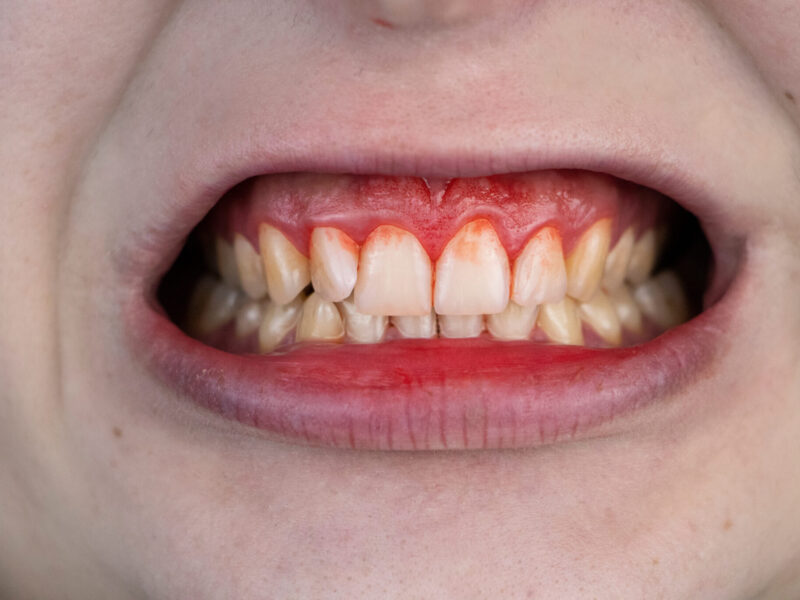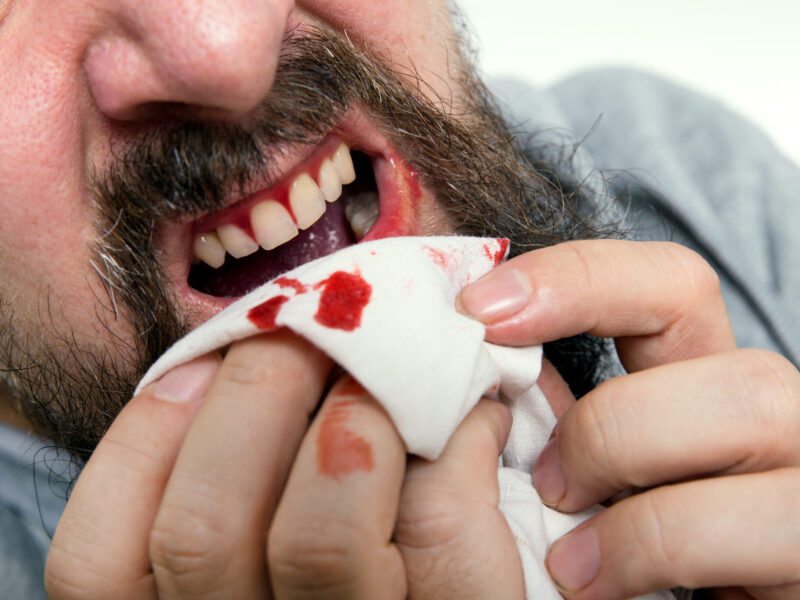Causes of Gum Bleeding When Brushing
Experiencing gum bleeding when you brush can be concerning, yet it’s a common issue that many face. It often points to simple causes that can be managed with changes to your daily oral hygiene routine or a quick visit to your dentist. Gum bleeding can occur for various reasons, from gum disease to the way you brush your teeth. Understanding these causes can help you take proactive steps to improve your oral health.

Common Causes of Gum Bleeding
Gum bleeding when you brush isn’t just common; it’s often a sign your gums need a bit more care. Whether it’s from harsh brushing or an underlying gum condition, understanding these triggers can help you take control of your oral health.
The Role of Plaque and Gingivitis
Plaque buildup is a key player in causing gingivitis, which can make your gums bleed when you brush. Regular brushing and flossing can stop plaque from hardening into tartar, a tougher substance that irritates your gums. If gingivitis does develop, your dentist can offer treatments like professional cleaning in Brisbane or targeted dental care to get your gum health back on track and stop the bleeding.
The Impact of Brushing Too Hard
Brushing too hard can be just as harmful as not brushing at all. Aggressive brushing can wear down your enamel and irritate your gums, leading to bleeding. Switching to a soft-bristled toothbrush and using gentle, circular motions can clean your teeth effectively without damage. It’s also a good idea to replace your toothbrush every three to four months to ensure the bristles aren’t too stiff from wear, which can also protect your gums from unnecessary harm.
Periodontitis: Beyond Simple Gum Bleeding
Periodontitis is a serious gum disease that goes beyond simple bleeding. It occurs when untreated gingivitis escalates, causing gums to pull away from teeth and form spaces that become infected. If not addressed, this can lead to tooth loss. Thankfully, treatments are available to manage this condition. Scaling and root planing can clean below the gum line, and antibiotics might be used to clear up infections. Regular dental check-ups are crucial for catching periodontitis early and keeping your gums and teeth healthy.
Medications That May Cause Gum Bleeding
Certain medications, such as blood thinners and some prescription heart medicines, may increase your risk of gum bleeding. These drugs reduce the blood’s ability to clot, which can cause your gums to bleed more easily after brushing or flossing. If you’re taking these medications, it’s important to maintain excellent oral hygiene and inform your dentist about your prescriptions. Your dentist might recommend more frequent cleanings or a gentler oral hygiene routine to help manage the bleeding while ensuring your gums stay healthy.
Changes in Flossing Habits
Starting or changing your flossing routine can sometimes lead to gum bleeding. This is typically because your gums aren’t used to the new activity and may be a bit sensitive. To minimize discomfort and reduce bleeding, use a gentle touch when flossing. Slide the floss up and down against the tooth surface and under the gumline rather than forcing it down into the gums abruptly. It’s also a good practice to use a softer dental floss that is designed to be gentle on the gums. With consistent care, your gums will become stronger and less likely to bleed over time.

Pregnancy and Gum Health
Pregnancy can bring about many changes in your body, including your gum health. Hormonal shifts during pregnancy may increase the risk of developing gum disease, which can lead to gum bleeding. To keep your gums healthy, maintain a consistent oral hygiene routine with gentle brushing and flossing. It’s also wise to visit your dentist for regular cleanings and check-ups during your pregnancy. These steps can prevent gum problems before they start and keep both your smile and your baby healthy.
Nutritional Deficiencies and Gum Bleeding
Lack of certain nutrients can also lead to gum bleeding. Vitamins C and K are particularly important for maintaining healthy gums. Vitamin C helps strengthen your gums and the soft tissue in your mouth, reducing the risk of gum bleeding. On the other hand, Vitamin K is crucial for blood clotting, which helps prevent excessive bleeding. To boost your intake of these vitamins, include plenty of fruits like oranges and strawberries for Vitamin C and green leafy vegetables such as spinach and kale for Vitamin K. Incorporating these foods into your diet can help keep your gums healthy and reduce bleeding.
The Effects of Smoking on Oral Health
Smoking is one of the major risk factors for poor gum health, leading to problems like gum bleeding. It interferes with the normal function of gum tissue cells and can make your mouth more vulnerable to infections such as gum disease. Quitting smoking is a crucial step towards improving your oral health. Start by setting a quit date, seek support from friends, family, or a professional, and consider using quitting aids like nicotine patches or gum. Regular visits to your dentist can also help manage any oral health issues as you work to kick the habit for good.
H2: When to See a Dentist for Your Gum Bleeding
If your gums regularly bleed when you brush or floss, it’s time to consult a dentist. Here are some signs to watch for and what to expect during your visit:
- Frequent Gum Bleeding: If you notice bleeding every time you brush or floss, it’s a signal that something may be wrong.
- Persistent Bad Breath: Ongoing bad breath can be linked to the bacteria in gum disease.
- Swollen Gums: Gums that are swollen and tender to the touch need professional attention.
Visit Expectations
- Examination: Your dentist will thoroughly examine your gums for signs of disease.
- Cleaning: They may perform a professional cleaning to remove plaque and tartar.
- Further Treatment: For more severe cases, treatments like scaling or root planing may be suggested.
Regular dental check-ups are crucial as they help identify and treat gum issues before they become more serious, ensuring your gums and teeth stay healthy.





































